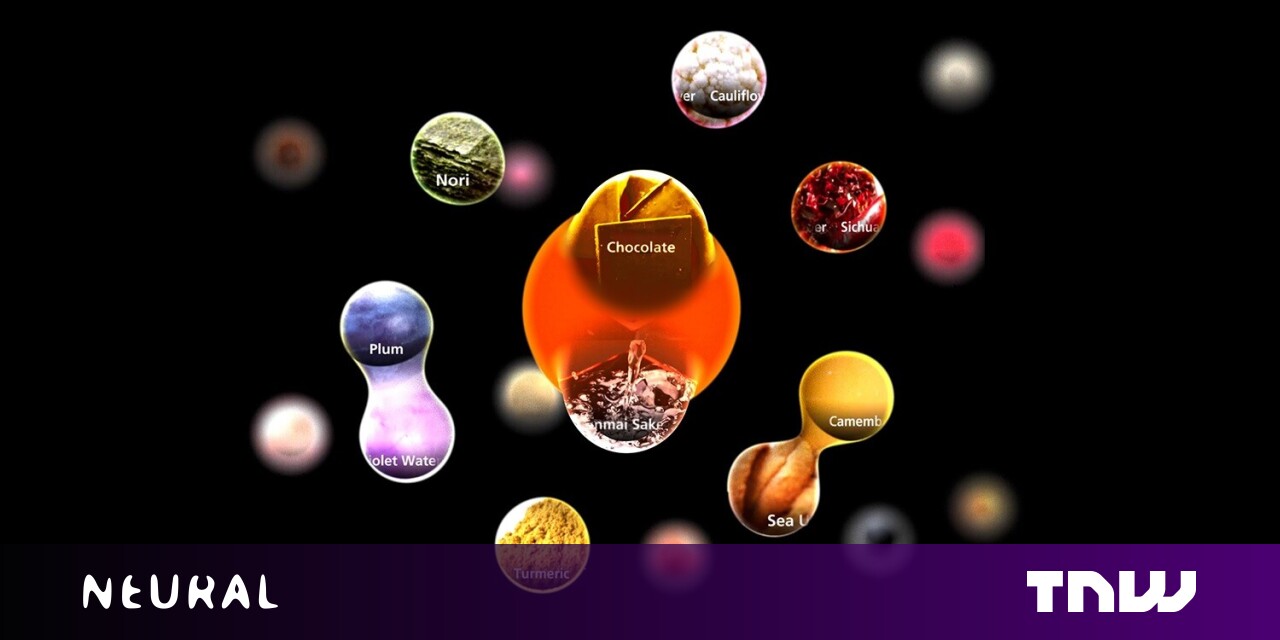
Sony AI recently announced its Gastronomy Flagship Project, an AI-powered initiative built on “enhancing the creativity and techniques of chefs around the world.” This might sound like a small-potatoes problem compared to self-driving cars, virtual assistants, or other popular AI programs. But everybody eats.
The culinary arts have been around for as long as there’s been people with appetites. Sony AI would be hard-pressed to find a field with more ubiquitious coverage than gastronomy. Per the Sony AI website:
With the aim of enhancing the creativity and techniques of chefs around the world, the Gastronomy Flagship Project consists of the research and development of an AI application for new recipe creation, a robotics solution that can assist chefs in their cooking process, and a community co-creation initiative that will serve as a foundation to these activities.
Sony AI describes this initiative as a method by which it can provide tools and resources to aid chefs in the creation of new culinary creations and in engaging with their fans. And, yes, fans is definitely the right word. Twenty seconds on Instagram is enough to show you how huge foodie culture has become. There are more people dedicated to entertaining others through the preparation, display, and discussion of new and interesting food and beverage creation and serving techniques than every before.
Like gaming and imaging, gastronomy is a market with no ceiling in sight.
Related: AI will soon decided what we eat
Sony AI’s contributions to the field will come in the form of a three-pronged approach. The first prong is AI for recipe creation. Developers have dabbled in neural networks for recipe discovery for years with some often hilarious results. But Sony AI’s endeavor here involves a bit more than just smashing a bunch of recipes together in a database and seeing what a GAN spits out.
Per a press release:
Sony AI will utilize a variety of data sources – including recipes and ingredient data, such as taste, aroma, flavor, molecular structure, nutrients, etc. – to develop a Recipe Creation App that will be powered by proprietary AI algorithms to assist the world’s top level chefs in their creative process of ingredient pairing, recipe design and menu creation.
The next step for the company is the development of a chef’s assistant in the form of a robot. The company hopes to create a smart, automated solution to the age-old problem of helping out in the kitchen. What might be more exciting is this little hint from the website:
Sony AI aims to create a solution that can assist chefs through the entire cooking process, from preparation to plating, by training the robots with sensors and AI for skill acquisition.
In addition, remote operations of these robots, for example to serve the chef’s meals to people in remote locations, are also in scope of these research and development efforts.
Sounds a lot like Sony AI’s working on a system by which a robot in, say, Amsterdam could be programmed to create a 1:1 replica of a meal created by a chef in, say, Hollywood. If that means I can finally get some authentic Roscoe’s Chicken and Waffles without having to go back to LA, I’ll be the first to call it a eureka moment for science and AI.
Finally, the company hopes to use it’s machine learning tools to help facilitate community collaboration and interaction in the chef world. In one such effort, the company plans to release interviews with various chefs on topics such as food sustainability and dietary health during the pandemic as a community-building series.
Quick take: Sony AI’s commitment to gastronomy is impressive. This is a real-world issue that effects everyone in every single country on the planet. While all of us might not be in a position to cook up gourmet avocado toast and to drink with mimosas over gossip, everybody eats.
Sony’s AI endeavors here could lead to new nutritional discoveries, better growing and cultivation techniques, and even clever solutions to the larger looming issues of hunger and starvation.
We can’t wait to see what the company cooks up in 2021. For more information visit the Sony AI website here.
Published December 18, 2020 — 19:37 UTC
